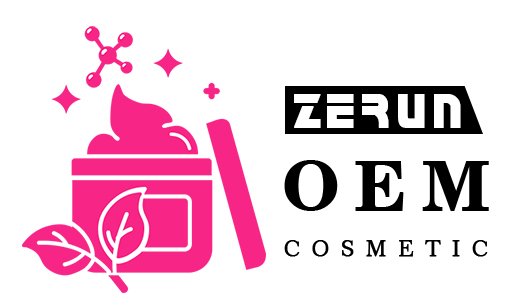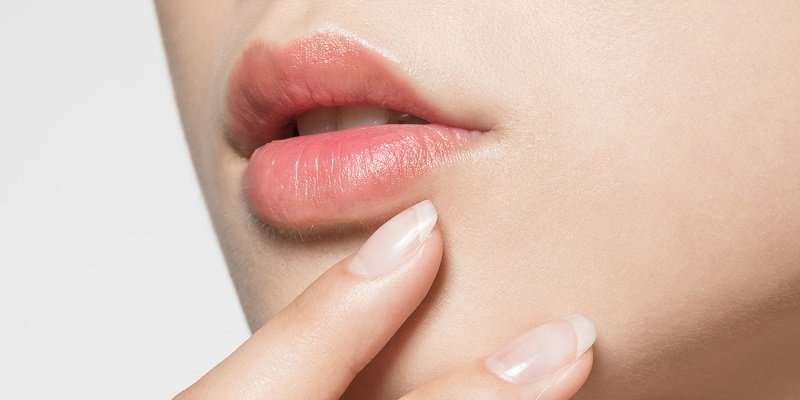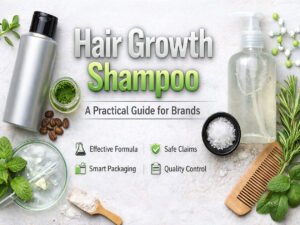Taking care of your lips is more than just applying a lip balm; it’s a vital part of your daily routine that keeps your smile soft, smooth, and healthy.
Lip care keeps your lips hydrated and protected, preventing dryness, chapping, and premature aging. By choosing the right products, preparing your lips properly, and applying treatments correctly, you achieve a healthier, more resilient smile. This guide offers clear, actionable steps and useful data to help you build a customized lip care routine that truly works.
Have you ever noticed how simple habits can make a big difference? Read on as we lay out each step in detail, with easy-to-follow instructions, practical data, and tables you can use as a reference to keep your lip care routine on track.
What is Lip Care?
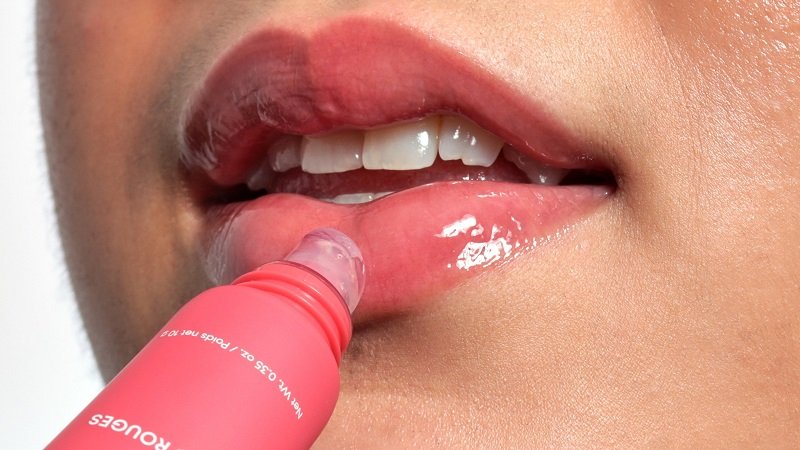
Lip care refers to the consistent and intentional practice of cleaning, hydrating, protecting, and maintaining the health of your lips. Because the skin on our lips is thinner and more delicate than other parts of the body—and because lips lack oil glands—they are more vulnerable to dryness, cracking, peeling, sun damage, and premature aging. A good lip care routine helps prevent these issues and keeps your lips soft, smooth, and healthy-looking.
🔍 Why Are Lips Different from the Rest of Your Skin?
Let’s break it down:
- No Sebaceous (Oil) Glands: Unlike other areas of your face or body, your lips don’t produce natural oils to keep themselves moisturized.
- Thin Epidermis: The outer skin layer of the lips is much thinner—making them more sensitive and quicker to lose moisture.
- Low Melanin Levels: Your lips have little to no melanin (the pigment that protects skin from UV rays), which makes them more prone to sunburn and discoloration.
- High Exposure: Lips are constantly exposed to elements like wind, sun, spicy foods, and even saliva—all of which can dry them out.
🧴 What Does Lip Care Involve?
A complete lip care routine goes beyond just applying chapstick. It includes several essential steps that work together to keep your lips in great condition:
| Lip Care Step | Purpose |
|---|---|
| Cleansing | Removes dirt, food particles, and product buildup from the lips |
| Exfoliating | Gently removes dead skin cells to reveal smooth skin underneath |
| Hydrating | Delivers moisture deep into the lip layers to prevent dryness |
| Moisturizing | Locks in hydration and creates a protective barrier against damage |
| Sun Protection | Shields lips from UV rays that can cause pigmentation and aging |
| Repair Treatment | Uses active ingredients to heal cracked, chapped, or inflamed lips |
🧠 Why is Lip Care Important?
Neglecting your lips can lead to:
- Chapped or Cracked Lips: Painful splits and peeling that make eating and smiling uncomfortable.
- Discoloration: Uneven tone or darkening from sun exposure or dehydration.
- Premature Aging: Fine lines and wrinkles can develop faster around the mouth area if lips are not kept healthy.
- Infections: Open cracks can lead to bacterial or fungal infections if left untreated.
Regular lip care prevents all of the above, keeping your lips in peak condition year-round.
🌟 What Makes a Good Lip Care Product?
Look for these beneficial ingredients:
| Ingredient | Benefit |
|---|---|
| Beeswax | Seals in moisture and protects from environmental damage |
| Shea Butter | Rich in fatty acids that nourish and soften lips |
| Hyaluronic Acid | Attracts and retains moisture deep in the skin layers |
| Vitamin E | Repairs skin and acts as an antioxidant |
| SPF | Protects from harmful UVA and UVB rays |
| Lanolin | Deeply moisturizes and heals chapped skin |
Avoid products with:
- Fragrance or menthol (can be irritating)
- Petroleum jelly only (creates a barrier but doesn’t hydrate)
- Alcohol (can be drying)
✅ Key Benefits of a Proper Lip Care Routine
- Keeps lips moisturized and smooth
- Prevents cracks, bleeding, or discomfort
- Reduces the appearance of lines and wrinkles
- Enhances the look of lipstick or lip tint
- Supports the overall health of your facial skin
🧊 BONUS: Lip Care Myths (Busted!)
- “Licking your lips helps hydrate them.” ❌ False. Saliva actually evaporates quickly and dries lips out more.
- “You only need lip balm in winter.” ❌ Nope. Sun, wind, and even dry indoor air in summer can damage your lips too.
- “Exfoliating daily gives you smoother lips.” ❌ Over-exfoliating can cause irritation. 1–2 times per week is enough.
Lip care is not a luxury—it’s a necessity. It’s about treating your lips with the same care and attention you give to your skin, hair, or hands. With consistent care, your lips will not only look great but also stay healthy, hydrated, and protected from damage. Whether you’re starting from scratch or upgrading your current routine, building awareness about what your lips need is the first step toward a better smile.
Which Lip Products Should You Use?
Use gentle cleansers, effective exfoliants, hydrating balms, and targeted treatments. Each product has a role in ensuring your lips stay moisturized, smooth, and protected.
Cleansers and Exfoliants
Before you apply any hydrating product, start with a clean base. A gentle lip cleanser removes any buildup of debris and ensures that your subsequent products work more effectively. Exfoliation is key, too. You can use:
- Mechanical Exfoliants: These contain tiny particles like sugar that gently scrub away dead skin.
- Chemical Exfoliants: Mild acids, such as glycolic acid, help dissolve dead skin cells without physical abrasion.
A balanced approach to exfoliation helps maintain smooth lips without causing irritation.
Hydrating Balms and Moisturizers
Once your lips are clean and exfoliated, hydration is the next critical step. Look for balms or moisturizers that contain:
- Beeswax: Acts as a natural barrier to lock in moisture.
- Vitamin E: Supports skin repair and protects against environmental stress.
- Hyaluronic Acid: Known for its ability to hold many times its weight in water, ensuring lasting hydration.
Data from dermatological research indicates that using lip balms with SPF can cut down the risk of UV-induced damage by nearly 50%.
Specialized Treatments and Serums
For more advanced care, you might consider lip serums or specialized treatments. These products can include active ingredients like peptides and antioxidants that help to repair and rejuvenate the delicate skin of your lips. They are designed for those who may be experiencing deeper dryness or early signs of aging.
Sunscreen and Protective Products
Protection from the sun is crucial, even for your lips. Lip products that include SPF not only protect against sun damage but also prevent the harmful effects of UV exposure, much like regular sunscreen does for your face.
How to Prepare Your Lips for a Lip Care Routine?
To prepare your lips, start by cleansing and gently exfoliating them, then apply a light layer of hydration. This process ensures that your lips are ready to fully benefit from subsequent care products.
Gentle Cleansing
Begin your routine by washing your lips with lukewarm water. Use a soft cloth to gently remove any dirt or residue. This step is important because it creates a clean surface for your moisturizer to work effectively. Avoid using harsh soaps, as they can strip away natural oils.
Light Exfoliation
Exfoliating your lips once or twice a week helps to remove dead skin cells. However, it is important not to overdo it:
- Tip: Use a soft-bristled toothbrush or a gentle scrub with fine sugar particles.
- Caution: Over-exfoliating can make your lips more sensitive, so maintain a balanced routine.
Hydration Techniques
After cleansing and exfoliating, lightly tap your lips dry. Then apply a hydrating serum or moisturizer. Using a product with hyaluronic acid can help your lips absorb moisture better.
- Data Point: Pre-hydrated skin can absorb up to 30% more of the active ingredients from your products, enhancing their effectiveness.
Environmental Considerations
If you’re stepping outdoors, consider a primer that locks in moisture and creates a smooth base for your lip care products. This small extra step can help maintain your lip hydration throughout the day.
Do You Know How to Exfoliate and Moisturize Effectively?
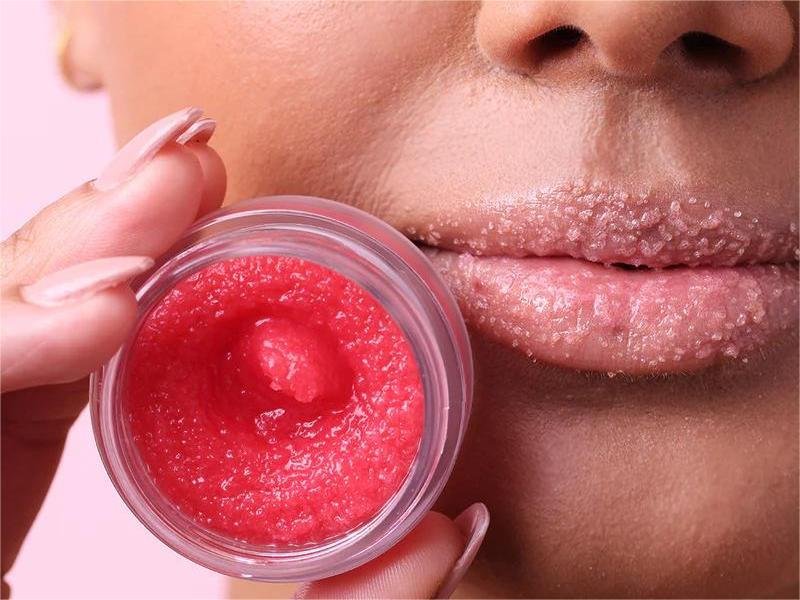
Use gentle methods to exfoliate, and follow with a nourishing moisturizer. This routine removes dead skin while ensuring that the new, soft skin gets the hydration it needs to stay smooth.
Exfoliation Techniques
Exfoliation can be done in two primary ways:
- Mechanical Exfoliation: This involves using a scrub with small particles that physically remove dead cells. It offers immediate smoothness but must be used sparingly to avoid micro-tears.
- Chemical Exfoliation: Using mild acids such as glycolic acid can provide a more uniform exfoliation without the need for physical scrubbing.
| Exfoliation Type | Pros | Cons |
|---|---|---|
| Mechanical | Immediate smoothness | Risk of micro-tears if overused |
| Chemical | Uniform and deep exfoliation | May need adjustment for sensitive skin |
Moisturization Strategies
Moisturization is equally important. Once your lips are clean and exfoliated, choose a moisturizer that works with your skin’s natural properties. Look for:
- Barrier-Forming Ingredients: Such as beeswax and lanolin, which create a protective shield.
- Nutrient-Rich Components: Like vitamins E and C that support skin health and repair.
Using the right product can significantly improve the moisture retention of your lips. For instance, lip balms that include hyaluronic acid show measurable improvements in hydration levels when applied regularly.
Combining Exfoliation and Moisturization
A sequential routine is best:
- Cleanse your lips.
- Exfoliate gently.
- Apply a hydrating serum.
- Seal in moisture with a protective balm.
This combination ensures that the freshly revealed skin absorbs the benefits of hydration and protection. Here’s a simple table to guide your routine:
| Step | Action | Frequency |
|---|---|---|
| Cleansing | Wash with lukewarm water | Twice daily |
| Exfoliation | Gentle scrub or chemical exfoliant | 1-2 times per week |
| Hydration | Apply serum or moisturizer | Daily |
| Protective Sealing | Use lip balm with SPF | Daily, especially outdoors |
Frequency and Customization
The frequency of exfoliation and moisturization should be tailored to your specific needs. If you have very dry lips, you might need to moisturize more often, whereas those with more resilient skin may require less frequent care. Adjust your routine based on your personal experience and environmental conditions.
How to Properly Apply Lip Balm and Other Treatments?
Start with clean, slightly damp lips. Gently dab a small amount of lip balm evenly over your lips, ensuring that every area is covered. This method maximizes absorption and provides lasting protection.
Preparation Before Application
Ensure your lips are clean and prepped before applying any product:
- Step 1: Wipe your lips with a damp, soft cloth.
- Step 2: Lightly tap your lips dry. This ensures that any remaining impurities are removed and that your lip balm adheres well.
Application Methods
When applying lip balm or other treatments:
- Dabbing Technique: Use a small amount of product and dab it gently onto your lips. This helps in layering the product evenly without irritating the delicate skin.
- Even Coverage: Make sure you cover all areas of your lips, including the corners, to ensure complete protection and hydration.
Layering for Enhanced Benefits
Sometimes using more than one product can boost the overall effect:
- Step-by-Step: Begin with a hydrating serum, then apply your chosen lip balm. If you need extra protection or shine, finish with a clear gloss.
- Data Insight: Layered application has been shown to increase moisture retention by a noticeable margin, offering long-lasting protection.
Below is a quick reference table to help you with the sequence:
| Step | Product Type | Application Method |
|---|---|---|
| 1. Cleansing | Gentle cleanser | Wipe with damp cloth |
| 2. Hydration | Serum or light moisturizer | Tap dry and apply |
| 3. Protective Sealing | Lip balm | Dab evenly |
| 4. Optional Layer | Lip gloss | Light overlay |
Special Considerations for Treatment Products
If you are using products with active ingredients such as retinol or peptides:
- Usage Tips: Follow the recommended guidelines on the product label. Often, a little goes a long way.
- Application: Start with a small amount and monitor how your lips respond before increasing the usage.
Addressing Seasonal Variations
Your lip care routine might need slight adjustments based on the season:
- Winter: Choose richer formulations and apply more frequently to counteract the harsh, drying effects of cold air.
- Summer: Opt for lighter products that include SPF, protecting your lips from the sun while keeping them hydrated.
A seasonal adjustment table can be helpful:
| Season | Recommended Product Features | Application Frequency |
|---|---|---|
| Winter | Rich, hydrating balms with beeswax | 3-4 times daily |
| Summer | Light, SPF-infused balms | 2-3 times daily |
Are There Customized Lip Care Solutions to Meet Your Unique Needs?
Yes, you can customize your lip care routine with tailored formulations. Personalized products allow you to select ingredients that best suit your skin type, lifestyle, and specific needs.
Tailored Formulations
Customized lip care products offer the flexibility to choose ingredients that work best for you. For example:
- Ingredient Adjustment: You can have formulations that vary in the ratio of natural extracts, essential oils, and active compounds.
- Personal Preferences: Whether you need extra hydration or a lighter product, customized options let you fine-tune your routine.
Branding and Personalization
For businesses looking to create a distinct identity, customized lip care products provide unique branding opportunities:
- Custom Packaging: The ability to choose packaging that aligns with your brand helps create a consistent customer experience.
- Tailored Formulations: Adjusting the formulation to meet specific market demands can lead to a more engaging product offering.
Consultation and Testing
The process of customizing your lip care routine involves:
- Consultation: A detailed consultation helps determine which ingredients and formulations suit your specific needs.
- Testing: Sample testing allows you to ensure the product performs as expected before finalizing the formulation.
Integrating Technology and Skincare
Advancements in skincare technology now enable the development of formulations that adapt over time:
- Innovative Solutions: For instance, time-release moisturizing complexes can continuously supply hydration, adjusting to environmental changes.
- Consistency: These formulations ensure that your lips remain hydrated and protected throughout the day.
Economic and Environmental Considerations
Custom lip care products are not just about personal care; they also support sustainable practices:
- Sustainability: Eco-friendly ingredients and ethical packaging contribute to a reduced environmental footprint.
- Cost Efficiency: Custom formulations can be designed to offer long-term savings by reducing the need for multiple products.
| Aspect | Benefit |
|---|---|
| Economic | Long-term cost savings through durability |
| Environmental | Reduced waste and eco-friendly production |
| Personalization | Products tailored to specific skin needs |
Conclusion
By following these detailed steps and using the data provided, you can confidently create a lip care routine that not only meets your personal needs but also adapts seamlessly to different conditions. Embrace this clear, data-driven approach to achieve a lasting, healthy smile every day.
If you’re ready to elevate your lip care routine with bespoke, high-quality products, consider reaching out to Zerun Cosmetic Factory. Our expertise in custom skincare solutions means you can get products that are designed exactly to your specifications. Contact us today for a personalized consultation and quote, and take the first step toward a more confident, beautifully cared-for smile.
